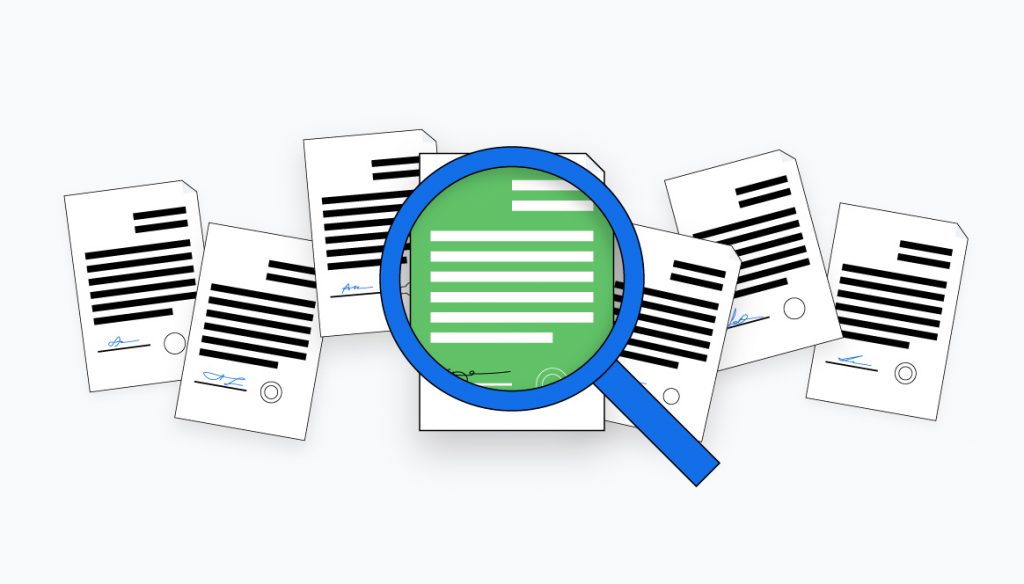Before a Loan Originator can offer loans on Mintos, we carry out a series of due diligence reviews and checks to find out if they’re suitable for our platform. These checks are the most important aspect of our onboarding process for new Loan Originators, since many investors measure risk based on knowledge of previous loan performance or the profile of the Loan Originator themselves.
Due diligence begins as soon as we receive an application from a Loan Originator, but even before this we’ve carried out our own market research and benchmarking to give us the best possible understanding of the industry, the local market and its strongest lending companies. For every 10 lending companies we meet who want to offer loans on Mintos, only 1 will successfully fulfil our requirements to join the platform.
Even though due diligence can’t guarantee that every loan will result in a successful investment, our aim is to minimize risk by ensuring the quality of the loans that Loan Originators will be able to bring to our marketplace. To explain the process around these checks, even more, this article breaks down the three main pillars of due diligence we carry out before onboarding a Loan Originator to the Mintos platform.
1) Loan book quality and performance
The biggest question when considering a potential Loan Originator for our platform is about profitability: will their loans deliver payouts to Mintos investors? Volatility in any Loan Originator’s earnings is highly linked to the quality of their loan book portfolio, so as a result, we put a lot of emphasis on checking past performance. All Loan Originators have a loan book with a record of their historic loan performance, so examining this gives us a better idea about their suitability for the Mintos platform.
We’ll look at a given period of time to evaluate how much overall profit or loss was made from the Loan Originator’s loans. We look for a profit margin that suggests the Loan Originator will have the means to transfer the share of the interest it promises to Mintos investors, and we expect them to reach a certain threshold of payoffs. Loan book performance is also highly dependent on the Loan Originator’s operational processes, such as underwriting rules, risk management policies and debt collection processes, which leads us to the next section.
2) Reviewing operational processes
We already have an idea of a Loan Originator’s experience and reputation from our initial market research, but reviewing the loan book will tell us about the quality and performance of its loan book so far. Even so, it’s important to establish that the Loan Originator will continue to issue the same quality loans to investors after we onboard them and that their processes are sufficient and cost-effective.
Here are the main aspects of a Loan Originator’s business we look at:
- Loan scoring, underwriting and collections: All lenders have a scoring system to assess potential borrowers when they apply for loans. But if the criteria is too lenient or not being adhered to, this could have an impact on the quality of loans the Loan Originator offers to investors. We’ll examine the way they vet borrowers, assess creditworthiness, approve loans and make debt collections. We’ll also check a sample of loans to make sure that they are issued in accordance with the Loan Originator’s internal underwriting rules.
- Management and shareholders: Loan Originators must demonstrate the skills and capabilities needed to run a lending business as well as the integrity to fulfill their obligations to us and the investors. We make sure their management teams and shareholders are who they say they are, and that they have the right competences for the role. This involves completing comprehensive internal and external reference checks and a face-to-face meeting with each Loan Originator before onboarding.
- Anti-money laundering: We carry out reviews of the Loan Originator to identify the beneficial owners, shareholders and authorized representatives. This is done by examining their company’s legal documents, AML questionnaires, and hearing details of their own AML practices. We also screen them for previous sanctions or involvement with politically exposed persons.
3) Financial standing
Thorough financial analysis is required before we onboard any new Loan Originator to Mintos. We look at their profitability in relation to the cost-efficiency of operational processes like the ones described above to get a better idea of the Loan Originator’s financial standing.
One key aspect of our checks is to find evidence that the Loan Originator can continue to service loans when it comes to collecting borrowers’ money, and forward on the borrowers’ repayments to Mintos in a timely manner. If a Loan Originator has good quality loans and has factored running costs into their business operations, they should have the financial means to do this. Loan quality and servicing abilities are interchangeably linked, because while quality loans ensure the profitability needed to carry out efficient servicing, likewise, good servicing is necessary to collect payments on quality loans. This is where the importance of having strong internal processes comes into play.
Here’s what we’re looking for:
- Consistent performance: We typically start with a review of audited financial statements as well as the Loan Originator’s most recent managerial accounts to identify any changes in the business operations.
- Payoff ratio vs direct business costs: We measure the profitability of the Loan Originator’s loans against operational running costs, to make sure that they are able to operate sustainably. We also look for evidence of sufficient equity that the Loan Originator can turn to in hard times, by analyzing their previous financial statements and managerial accounts.
- External and internal benchmarking: We’ll benchmark the Loan Originator’s company results against its peers and its past results in terms of profitability and operational processes like the ones mentioned in the section above. This helps us determine whether their business is operating at an above or below average rate – by their standards and by industry standards as a whole.
- Additional checks for the buyback guarantee: The buyback guarantee is typically financed from a loan’s interest spread that the Loan Originator retains from their loans – that is, interest from borrowers, minus interest to investors. We demand an even stronger balance sheet and higher liquidity for Loan Originators offering buyback guarantees than we would of Loan Originators not offering buyback. Since over 99% of the loans on Mintos right now come with a buyback guarantee, this check is currently quite standard.
After a Loan Originator joins Mintos
Finally, our checks and process don’t just stop after a Loan Originator joins the platform. We use an Application Programming Interface (API) to receive loan performance information in real-time, and review each Loan Originator’s loan book and financials performance on a monthly ongoing basis.
Underperforming loans are almost always the cause of issues with a Loan Originator, but sometimes unforeseen events – like a global pandemic – can occur which negatively impact on the Loan Originator’s performance and result in poorer loan performance. This in turn can lead to difficulties servicing or upholding their buyback guarantee on the loans, and ultimately, the risk of defaulting. In these cases, we have to move to the stage of negotiation or recovery, and we’ll explore what this process looks like in our next article.

